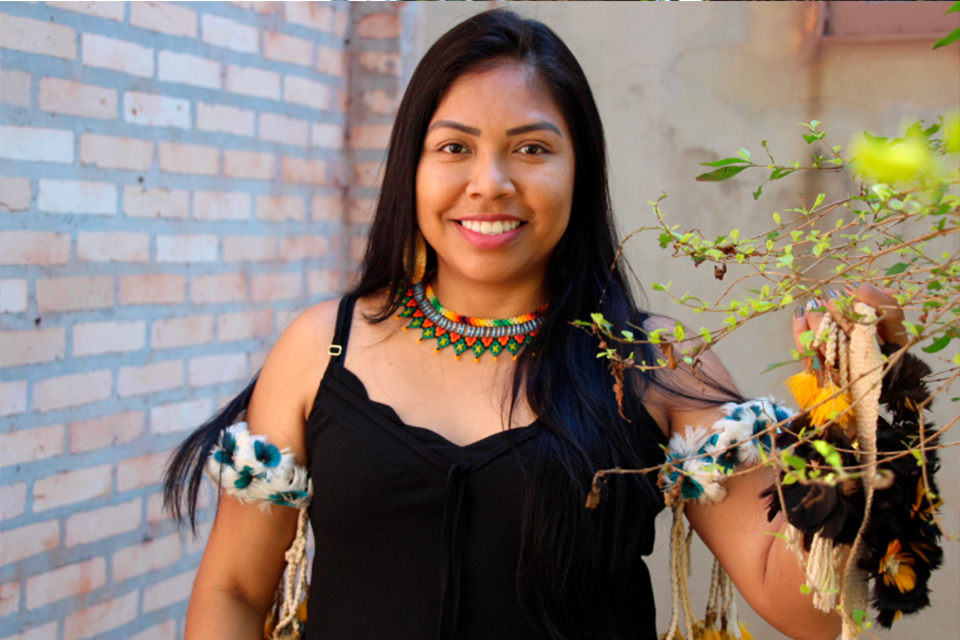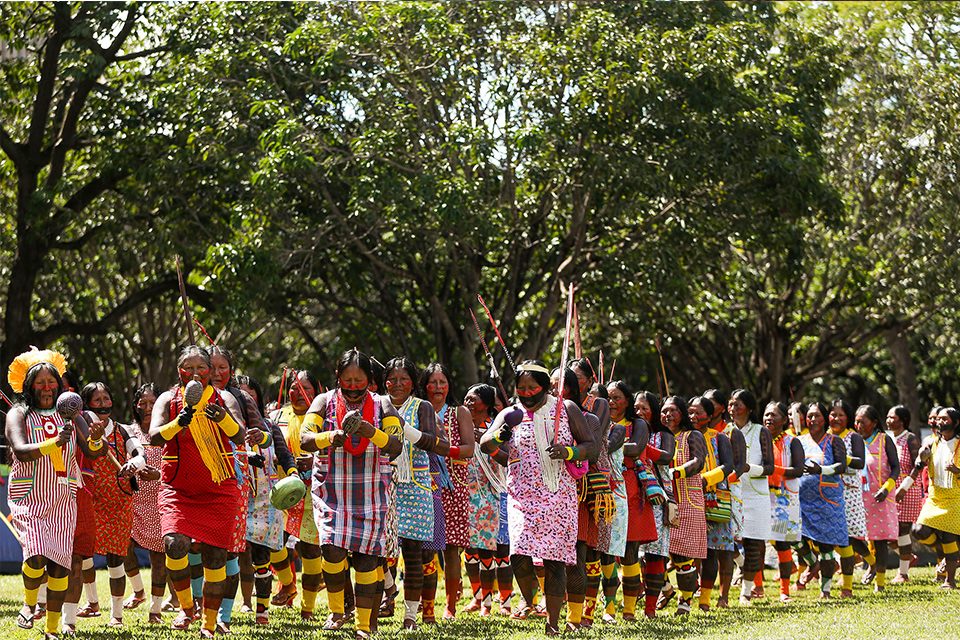Shortage of food and water challenge the prevention of the Coronavirus in Brazil’s largest indigenous reserve
In an interview with UN Women Brazil, earlier this month, nurse Indianara Machado Ramires Guarani Kaiowá, explained why indigenous women and children were more vulnerable and pointed out how persisting issues increased the risks posed to them by the new Coronavirus pandemic.Date:

Chronic vulnerabilities, intermittent water supply and food scarcity: these are some of the challenges faced in preventing the spread of COVID-19, according to nurse Indianara Machado Indianara Ramires Guarani Kaiowá, who works with the Technical Coordination Centre for Dourados, in Brazil. The Centre oversees the healthcare of more than 18,000 people living in Dourados, an area that encompasses the largest indigenous reserve in the country.
In an interview with UN Women Brazil earlier this month, the nurse explained why indigenous women and children are more vulnerable in terms of the pandemic and pointed out how persisiting issues have increased the risks posed to them by the Coronavirus.
The state of Mato Grosso do Sul, where Dourados is situated, has approximately 520 hospital beds in its Intensive Care Units (ICUs), 380 of them provided by Brazil’s Sistema Único de Saúde (SUS), the country’s publicly funded healthcare system. Yet in the city of Dourados, only 35 hospital beds are available for a total population of 210,000 people.
“We are already suffering from public policy failures that have resulted in a shortage of healthcare as well as quality education, sanitation and waste collection”, Indianara said. She also suggested that the reason for this could be attributed to “the lack of demarcation of indigenous territories, in addition to the absence of policies for job generation and income”. According to UN Women, women and girls can be affected by the difficulties of accessing nutritious and safe food due to the closures of food services in schools and communities, the overall scarcity of food, and the restrictions of circulation.
The nurse also explained that the indigenous communities’ proximity to Dourados’ urban centre, generated a constant traffic of people between the villages and the city, raising concerns regarding their ability to respect social distancing recommendations. She said that the women from the village would travel to the city in order to exchange cassava for rice.
Indianara has been very active in her community helping people be well informed about COVID-19, and working together with local authorities to address the lack of supplies for the populations facing most vulnerabilities at this time. “Sometimes the water comes once a week, and at best there would be water supply three or four times a week”. This generates tremendous concern, given the importance of water in the prevention of the outbreak. “We have been working with leaders to find a solution to this problem, doing everything we can to ensure that indigenous communities do not suffer during the pandemic,” she explained. A recent brief issued by UN Women’s Regional Office for the Americas and the Caribbean, states that Women are essential in the fight against the outbreak – as first responders, health workers and professionals, community volunteers and care workers, as well as being disproportionately affected by the crisis.
Ensuring the gender dimension in the response requires specific resources targeted to meet the needs of women and girls. Women’s organizations at the community level should be supported to ensure that messages about prevention and response strategies reach all women.
